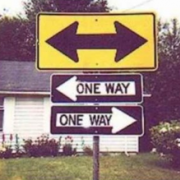In my role as a mental illness speaker and blogger, I receive a lot of comments and questions. The one item that stands out is that there is a lot of confusion over what bipolar disorder is and what it isnt.
Many folks believe that bipolar disorder is just a more socially acceptable form of depression. Many people who have experienced severe depression do, in fact, return to a normal state and are then happy. Why isnt that bipolar? Bipolar disorder isnt described as multiple mood states. Bipolar disorder is, specifically, cycling through extreme lows to extreme highs, from suicidal feelings to a high that is well beyond regular happiness and falls into the range of clinical psychiatric disorders.
Bipolar disorder can be a confusing illness because it encompasses so many things. It mirrors major depression, as an example, because that is the low. The difference between major depression and the bipolar low is that bipolar disorder also contains a high, which is clinically described as mania. It is the high that causes people to arch an eyebrow in my general direction. What do you mean you are too happy?
 It isnt the feeling of mania that is the issue. Truthfully, mania feels fantastic. I describe it as a consequence-free environment, with no burden of thinking how decisions I make today will impact other people or how Ill feel about them tomorrow. This freedom feels euphoric and, frankly, pretty damn good. But while mania feels consequence-free, it isnt. It is the bipolar equivalent of saying, Speeding never killed anyone; stopping did.
It isnt the feeling of mania that is the issue. Truthfully, mania feels fantastic. I describe it as a consequence-free environment, with no burden of thinking how decisions I make today will impact other people or how Ill feel about them tomorrow. This freedom feels euphoric and, frankly, pretty damn good. But while mania feels consequence-free, it isnt. It is the bipolar equivalent of saying, Speeding never killed anyone; stopping did.
The highs and lows of bipolar disorder are not dished out in equal doses. When I was untreated, I was manic around a quarter of the time, relatively normal 50% of the time, and severely depressed the rest of the time. Depending on when you came in contact with me, you would consider me happy-go-lucky, laid back, or a total downer.
And even within the various mood states, there is a variance. I have been depressed, seriously depressed, and I have been suicidal, all of which are markers that are considered, diagnostically, as depression, but are incredibly different feelings.
Bipolar disorder is difficult to understand. This shouldnt be all that surprising, as it is a complicated web of feelings, emotions, and symptoms. The journey between my lowest points and my highest points is a long one and one that I have trouble fully comprehending, myself. So I completely understand when my friends and family have a hard time grasping it.
It would be nice if bipolar disorder were easier to explain. It would be equally nice if bipolar disorder were better understood by both those diagnosed with the disease and those around us. Every conversation is an opportunity to educate others. And, like the illness itself, some of the conversation will make us feel low and some will make us feel high.
Gabe Howard

